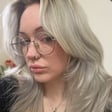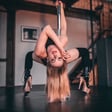Aunia Kahn was the 2nd guest ever on the SRTN podcast and I am so pleased Aunia is back with this lovely conversation that delves into art and its ability to heal and help us persevere.
Aunia Kahn is a multi-faceted creative entrepreneur and a globally awarded, collected, and exhibited figurative artist/photographer, published author, instructor, and inspirational speaker. She is also the owner of Rise Visible a full service creative digital marketing agency and Create for Healing.
Her work has been in over 300+ exhibitions in over 10 countries; at places such as San Diego Art Institute, Los Angeles Center for Digital Art, iMOCA, St. Louis Art Museum, Contemporary Art Museum St. Louis, Mitchell Museum, and the Jordan Schnitzer Museum of Art. She has also been a guest on podcasts like Entrepreneur on Fire, with 70 million downloads & 1 million monthly listens.
Aunia has curated several internationally recognized books and projects, including Silver Era Tarot, Inspirations for Survivors, Obvious Remote Chaos, Minding the Sea: Inviting the Muses Over for Tea, Avalanche of White Reason, XIII: The Art of Aunia Kahn, Witch’s Oracle and the Witch’s Oracle 2nd Edition, Moon Goddess (Modern Eden Gallery) exhibit, Tarot Under Oath (Last Rites Gallery), Lowbrow Tarot Project (La Luz De Jesus Gallery), etc.
Her forthcoming projects include; An Epidemic of Retrospective, Disintegrating Stars, and the Ethereal Realms Tarot.
She loves Animals, Prussian blue, Psychology, Design, Miracles, Hummingbirds & Life.




















